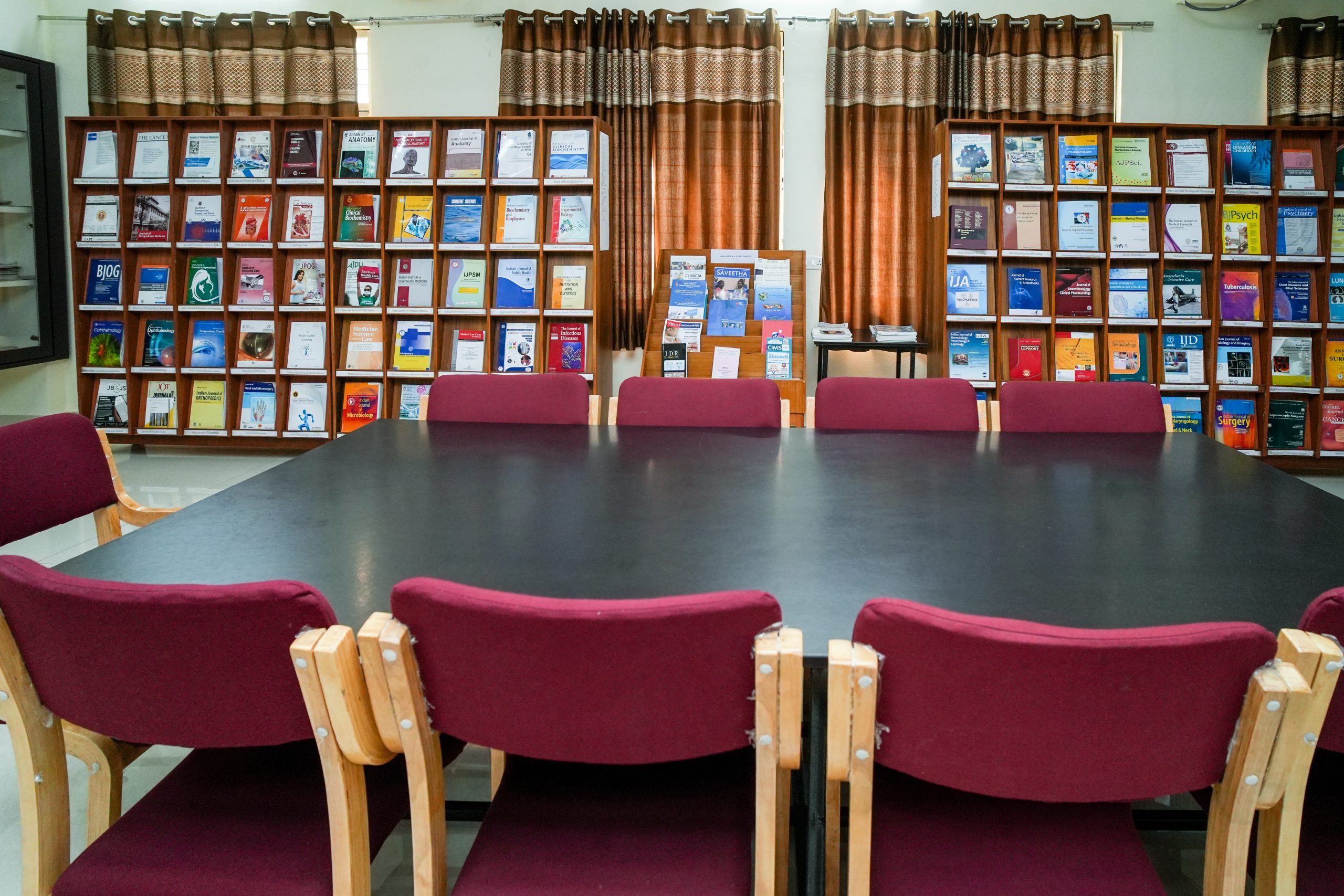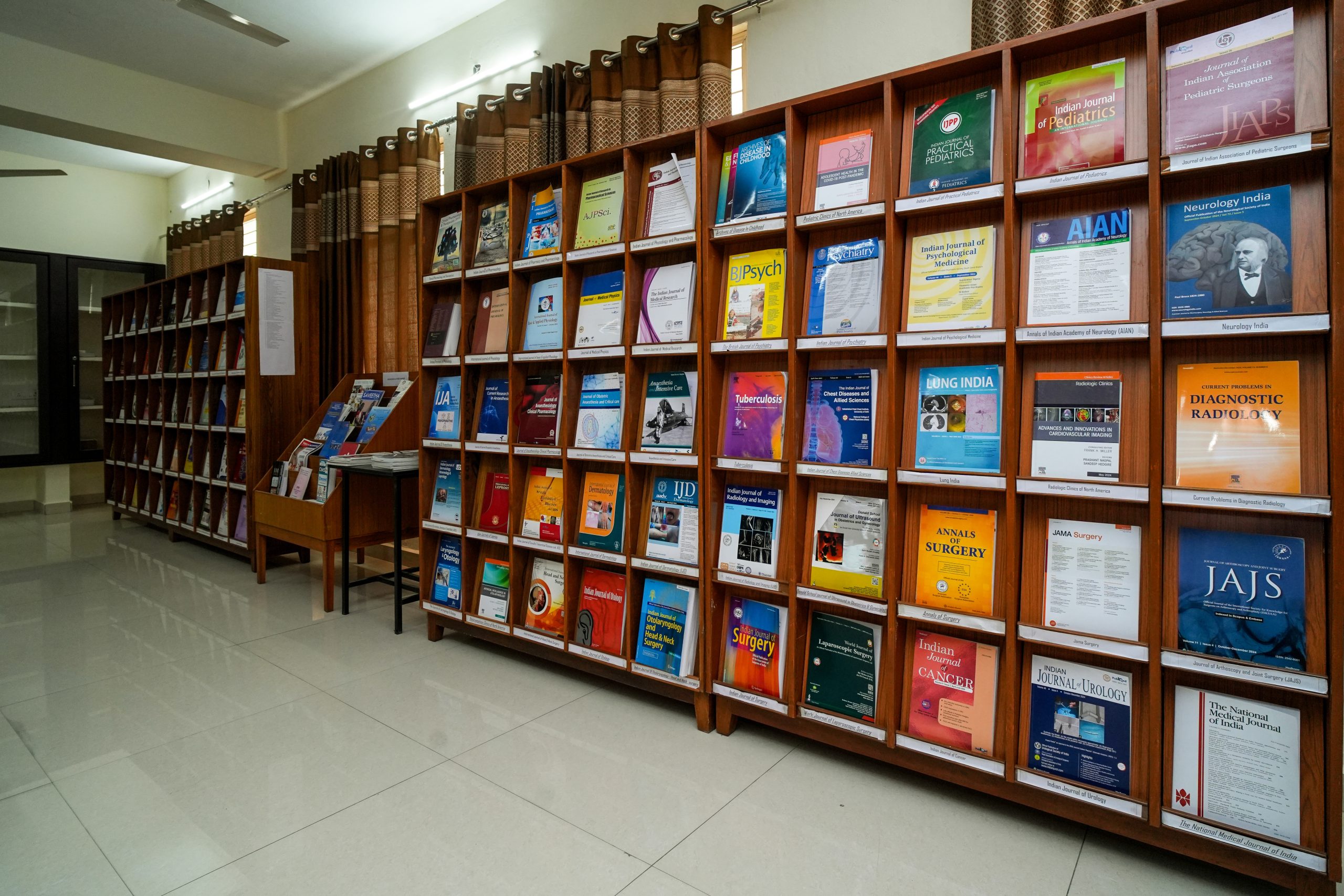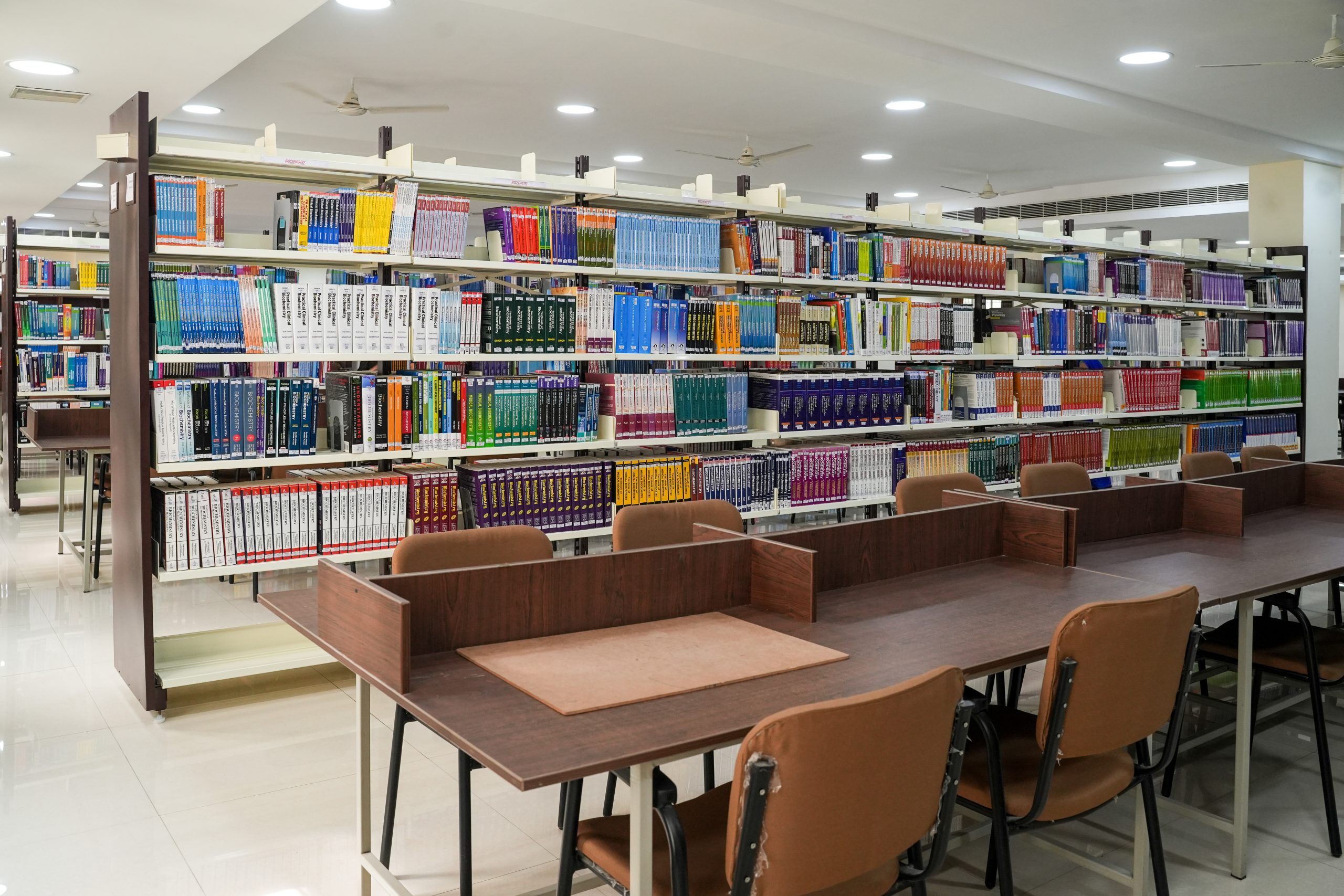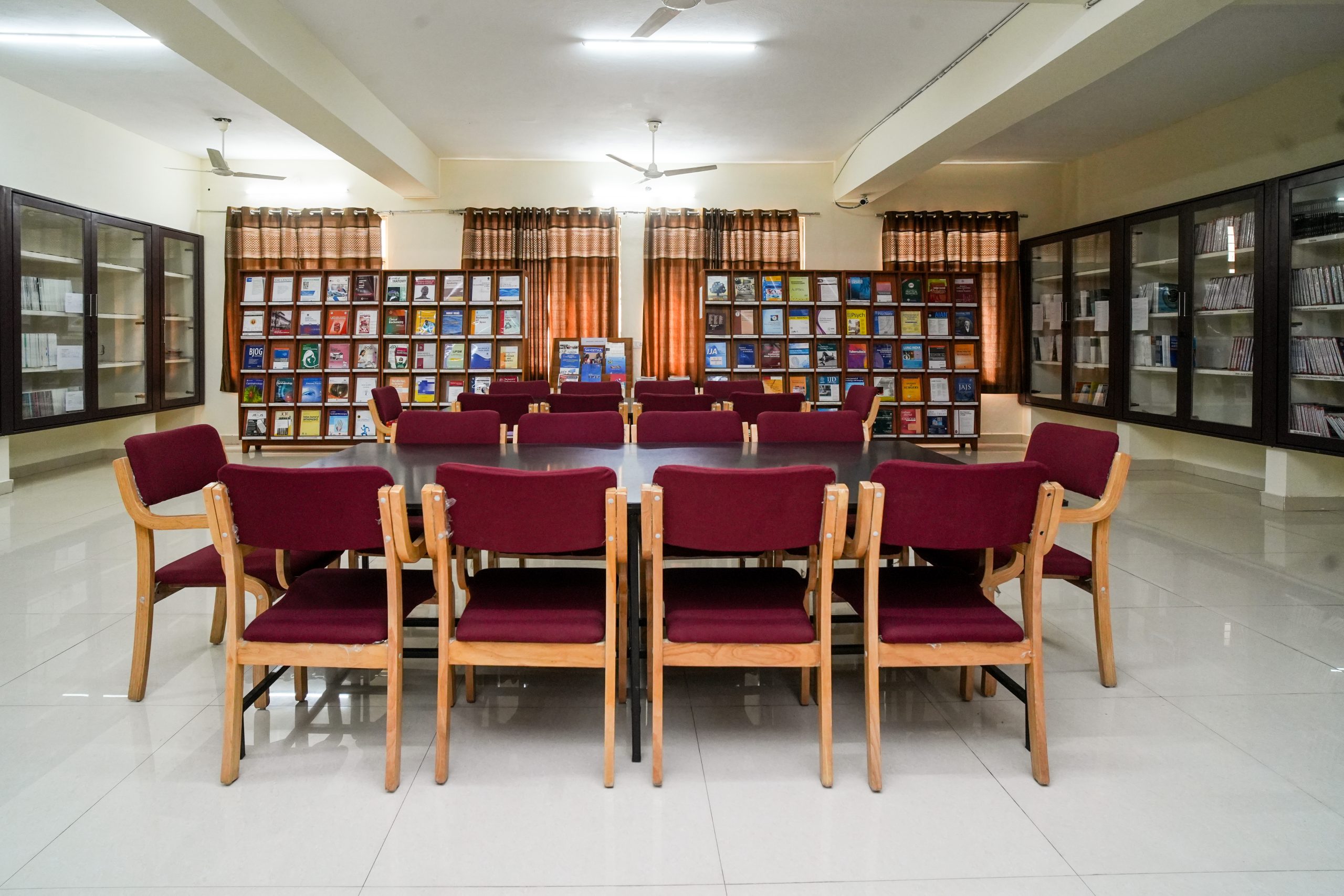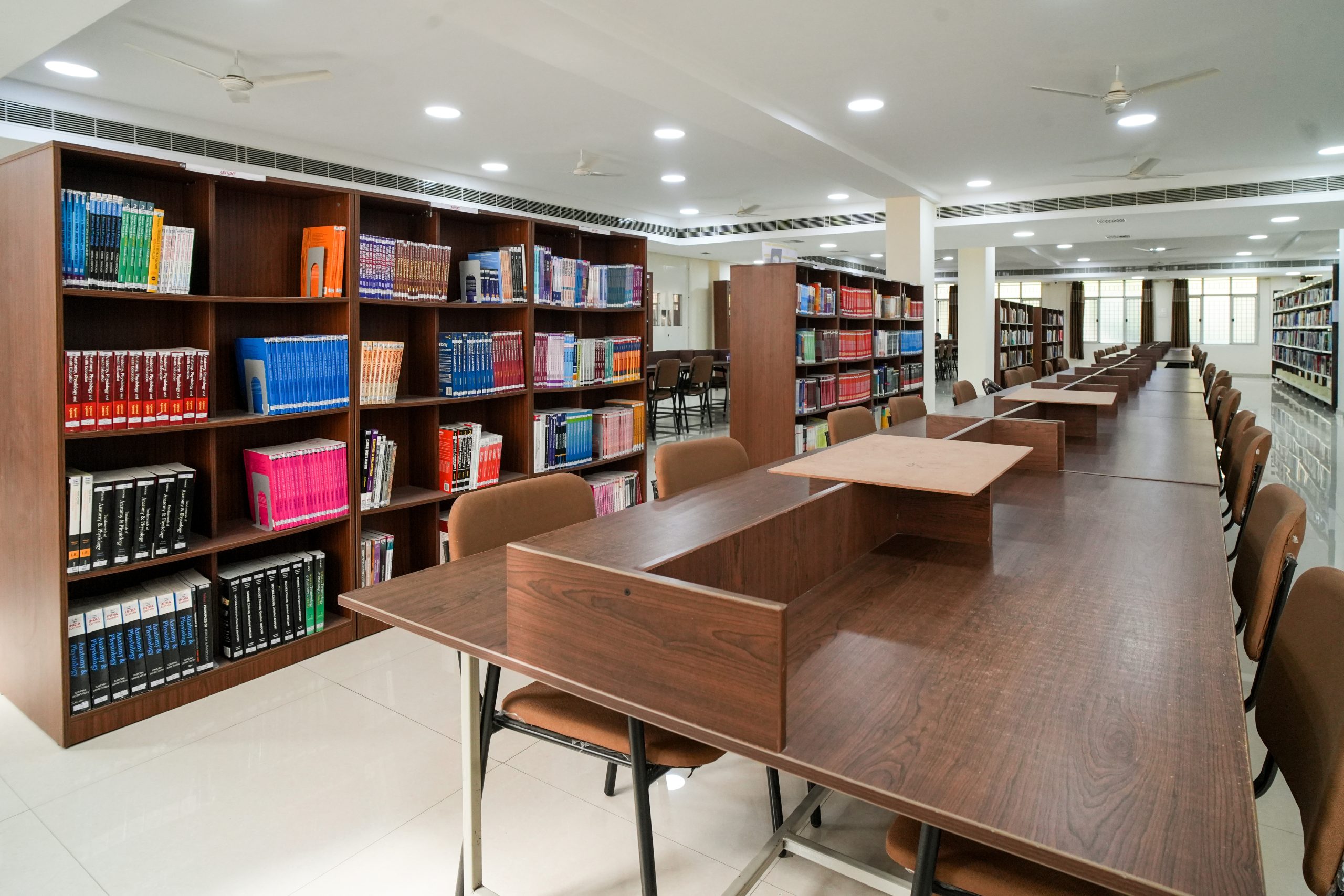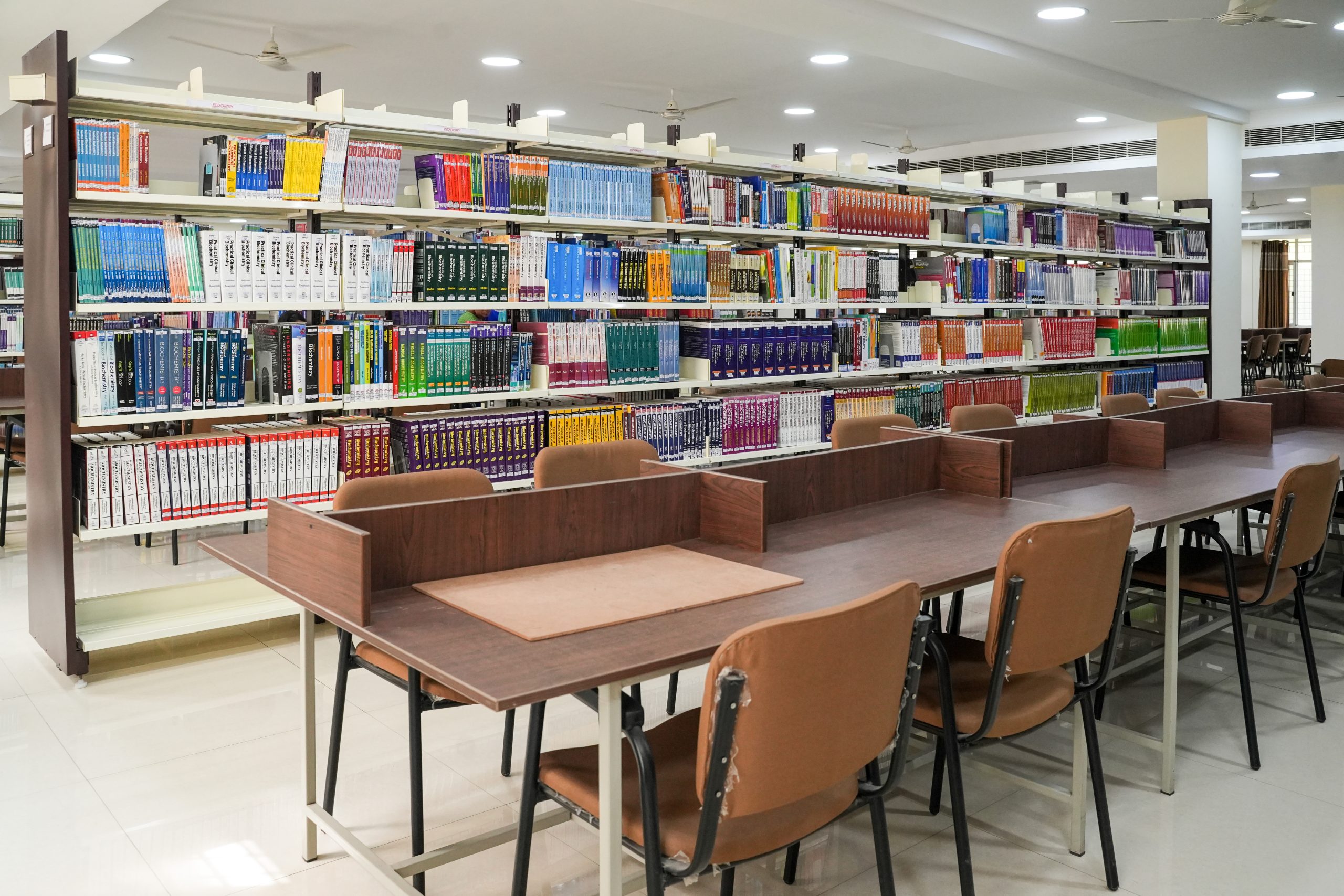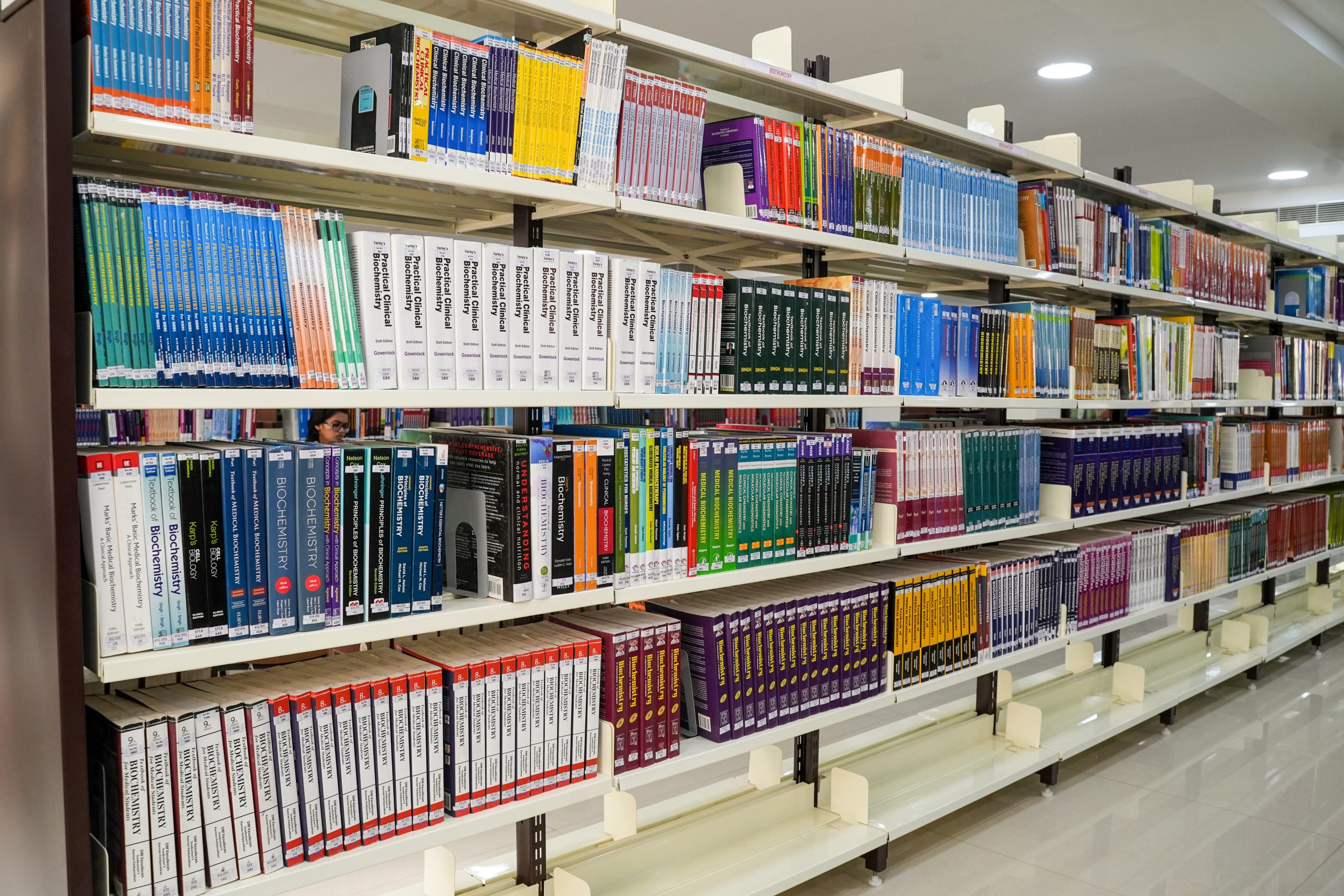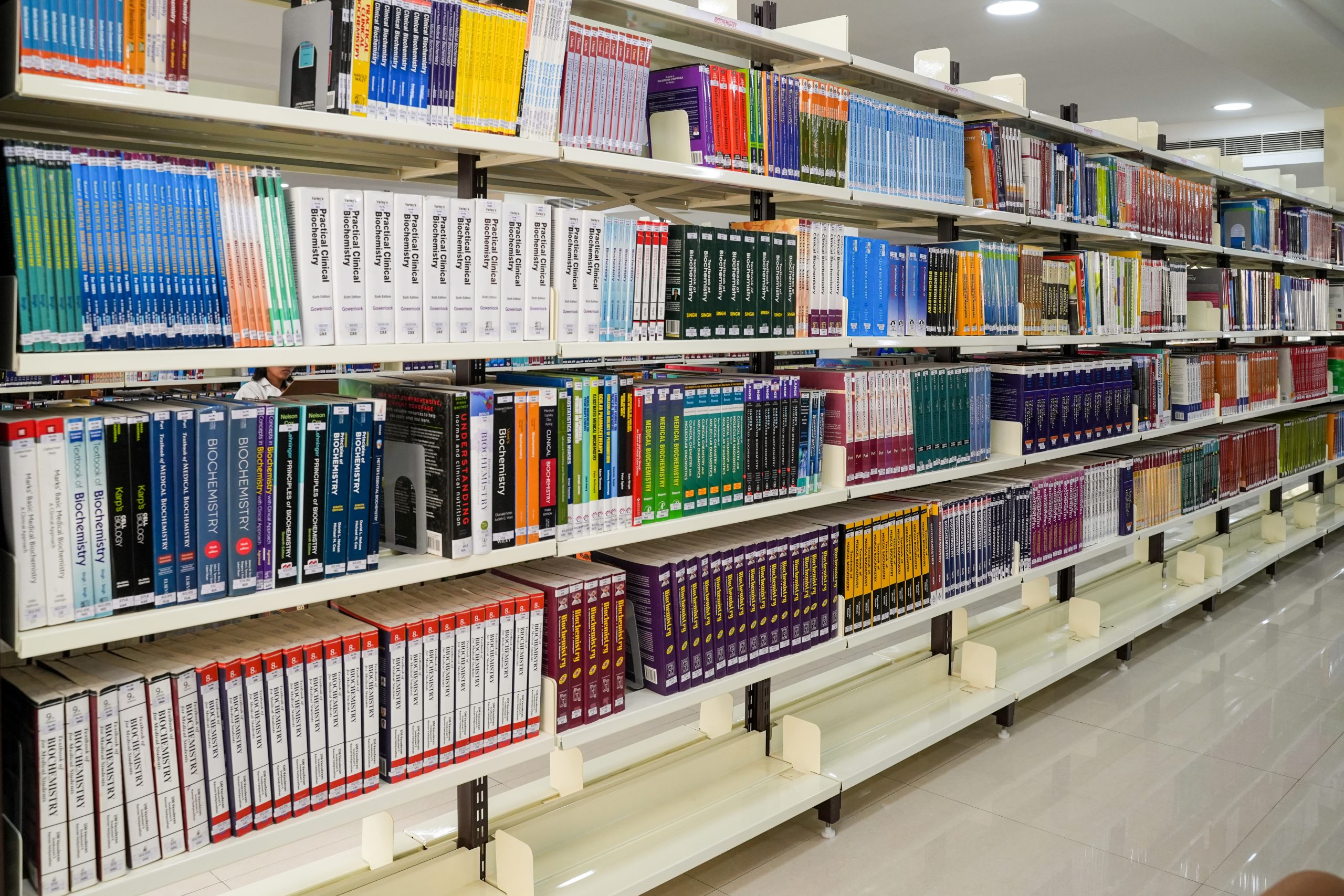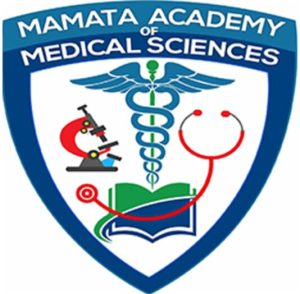




Libraries
A library is an essential part of a college, serving as a hub for learning, research, and academic growth. It provides students, faculty, and researchers with access to a vast collection of books, journals, digital resources, and study spaces, fostering an environment of intellectual development.
Features of a Mams Library
Extensive Collection of Resources:
- A vast selection of books, reference materials, and periodicals covering various disciplines.
- Access to national and international journals, research papers, and e-books.
- Archives of past research, dissertations, and institutional publications.
Digital and Online Resources:
- Access to online databases, e-journals, and digital libraries.
- Computer systems for browsing digital content and online research.
- Subscription to research platforms like PubMed, IEEE Xplore, Scopus, and JSTOR.
Well-Equipped Study Spaces:
- Quiet zones for individual reading and research.
- Group study rooms for collaborative learning and discussions.
- Comfortable seating and well-lit study areas.
Technology Integration:
- Digital catalog system for easy book search and borrowing.
- High-speed internet and Wi-Fi access for research and online learning.
- Printing, scanning, and photocopying services for academic needs.
Librarian Support and Assistance:
- Professional librarians available to help students find resources and conduct research.
- Training sessions on research methodologies, citation techniques, and digital literacy.
- Inter-library loan services for borrowing books from other institutions.
Additional Facilities and Services
Reading Rooms and Research Centers:
- Separate spaces for focused reading and study.
- Dedicated research sections for postgraduate and doctoral students.
Specialized Collections:
- Rare manuscripts, historical documents, and subject-specific books.
- Archives of past student theses and institutional research work.
Library Events and Programs:
- Workshops on research skills, citation formats, and academic writing.
- Book fairs, author talks, and literary discussions.
Extended Access and Flexible Timings:
- Extended library hours during exam periods.
- Digital access to resources for remote learning.
